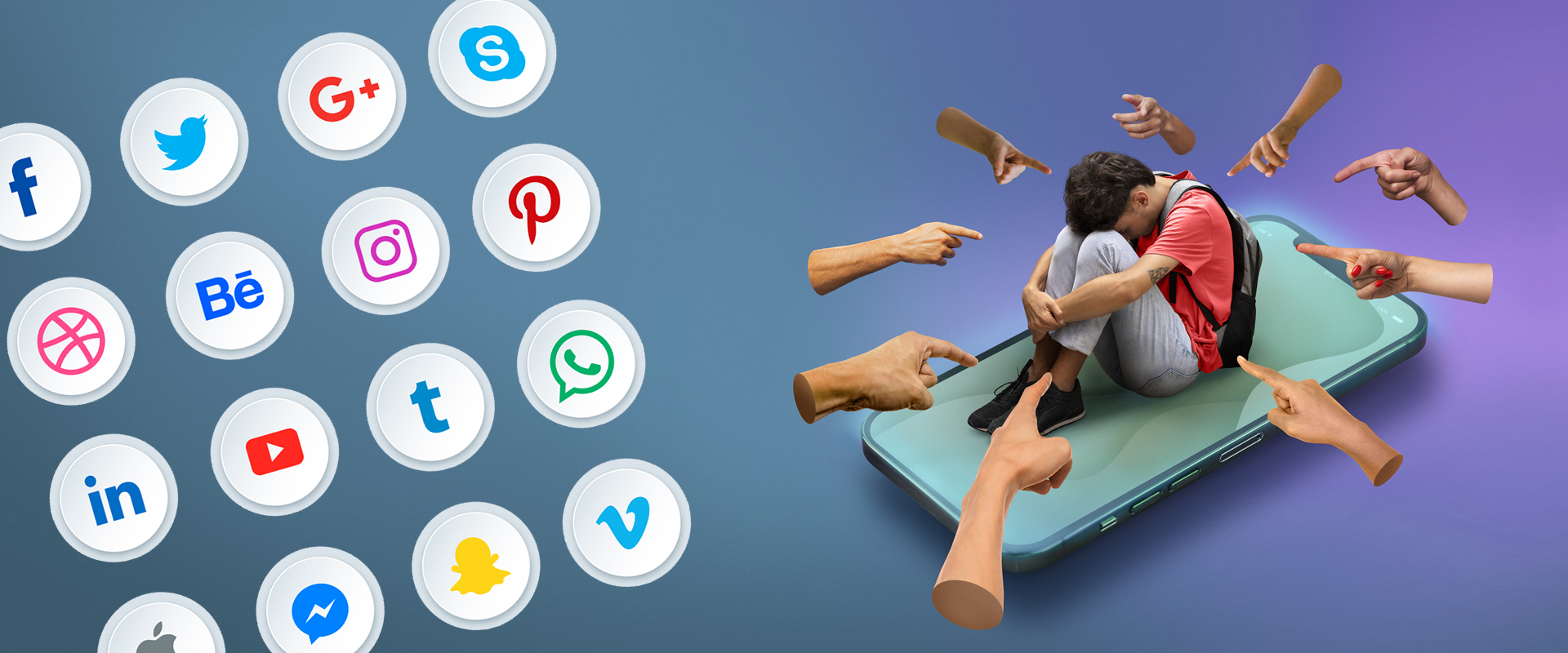The impact of Social Media on Mental Health

Social media has become an integral part of our lives, offering numerous opportunities for connection, self-expression, and information sharing. However, the impact of social media on mental health is a complex and multifaceted issue. Here are some key aspects to consider:
Positive Effects: Social media can provide a sense of belonging and support, allowing individuals to connect with like-minded people, communities, and support groups. It can also serve as a platform for raising awareness about mental health issues, reducing stigma, and promoting positive discussions.
Negative Effects: Social media can contribute to mental health challenges in various ways. One common concern is the potential for negative social comparisons. Seeing curated and idealized versions of others' lives on social media can lead to feelings of inadequacy, low self-esteem, and even depression. It is important to recognize that people often present a filtered version of their lives online, and comparison should be avoided.
Cyberbullying: Social media platforms can become breeding grounds for cyberbullying and harassment. The anonymity and distance provided by online interactions can embolden individuals to engage in hurtful behavior, leading to emotional distress and long-lasting psychological impact. It is crucial to address and combat cyberbullying by promoting digital empathy and fostering safe online environments.
Fear of Missing Out (FOMO): Social media can amplify the fear of missing out on social events or experiences. Constant exposure to others' activities and updates may trigger feelings of exclusion, anxiety, and a sense of being left behind. It is important to remember that social media only represents a fraction of people's lives and that offline experiences are equally important.
Addiction and Time Management: Social media platforms are designed to be engaging and can be addictive. Spending excessive amounts of time on social media can interfere with daily routines, productivity, and overall well-being. Establishing healthy boundaries and practicing mindful technology use can help maintain a balance between online and offline activities.
Information Overload: The constant influx of information on social media can be overwhelming and contribute to information overload. This can increase stress levels and impact mental well-being. It is important to curate one's social media feed, follow reliable sources, and practice digital detoxes when needed.
Self-Presentation and Authenticity: Social media often encourages the presentation of an idealized version of oneself. This pressure to portray a perfect life can lead to feelings of inauthenticity and contribute to mental health struggles. Embracing authenticity and sharing the realities of life can foster more genuine connections and reduce the negative impact of social media.
To mitigate the potential negative effects of social media on mental health, individuals can practice self-care, set boundaries, and cultivate a healthy relationship with technology. It is essential to be mindful of one's social media usage, prioritize offline interactions, seek support when needed, and promote a positive and supportive online environment for others.
